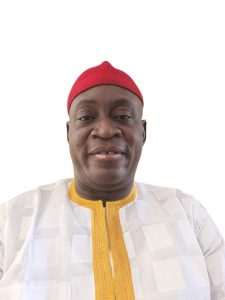World Leaders React as Trump Unilaterally Recognises Jerusalem as Capital of Israel
Donald Trump said he was casting aside the “failed strategies of the past” as he upended 70 years of US foreign policy and forged ahead with his controversial decision to recognise Jerusalem as the capital of Israel.
The US president's move was condemned by Saudi Arabia, which described it as “unjustified and irresponsible”.
The announcement from the White House was met with celebrations by Israel and immediate fury from the Palestinians, who accused him of destroying any hope of a peace deal.
“We cannot solve our problems by making the same failed assumptions and repeating the same failed strategies of the past,” Mr Trump said. “It is time to officially recognise Jerusalem as the capital of Israel.”
Defying warnings from around leaders around the world, Mr Trump said he “judged this course of action to be in the best interest of the US and the pursuit of peace between Israel and the Palestinians”.
He announced that America would become the only country in the world to move its embassy from Tel Aviv to Jerusalem, making good on a campaign promise important to many evangelical Christian and right-wing Jewish voters.
The Palestinians insist there can be no peace deal unless they are able to have east Jerusalem as the capital of their own independent state and said Mr Trump’s unilateral move had disqualified the US as peace broker.
“These condemned and unacceptable measures are a deliberate undermining of all efforts exerted to achieve peace and represent a declaration of the United States’s withdrawal from undertaking the role it has played over the past decades in sponsoring the peace process,” said Mahmoud Abbas, the Palestinian president.
Security warning for US citizens abroad
Hamas, the Islamist militant group which controls the Gaza strip, accused Mr Trump of “flagrant aggression” and called for Muslims across the Middle East to rise up against US interests.
US embassies across the Middle East have bolstered their security arrangements in anticipation of potentially violent protests.
The State Department issued an updated “Worldwide Caution” to US citizens abroad, advising travellers to “be alert to the possibility of political unrest, violence, demonstrations, and criminal activities.”
Mr Trump's decision was hailed by Israel and Jerusalem’s mayor ordered the American flag to be beamed in lights against the walls of the Old City in celebration.
“This is a historic day,” said Benjamin Netanyahu, Israel’s prime minister. “We are profoundly grateful to the president for his courageous and just decision.”
Mr Trump tried to placate Palestinian anger by saying his decision did not rule out the possibility of a two-state solution, where Jerusalem would be the capital of both Israel and an independent Palestinian state.
“We are not taking a position of any final status issues including the specific boundaries of Israeli sovereignty in Jerusalem or the resolution of contested issues,” Mr Trump said. “The US would support a two-state solution if agreed to by both sides.”
He called “for calm, for moderation, and for the voices of tolerance to prevail”.
Move is 'a stab in the back'
Mr Trump's speech left little solace for Palestinians as it did not firmly commit to the idea of an independent Palestine, nor make any mention of their major concerns like the construction of Israeli settlements in the occupied West Bank.
The status of Jerusalem is one of the most sensitive issues in the Israeli-Palestinian conflict, and Palestinian leaders insist there is no hope for a peace agreement unless they are able to set up their own capital in East Jerusalem. Israel claims the entire city as its “eternal and undivided capital”.
Husam Zomlot, the Palestinians' chief delegate to Washington, said recognising Jerusalem as the capital of Israel was a “stab in the back”.
Mr Trump says he is delivering where previous presidents have “failed”.
With Mike Pence, the US vice president, standing by his side, Mr Trump reminded American voters that both Bill Clinton and George W Bush had promised to move the US embassy to Jerusalem but had reneged once in office. “They failed to deliver. Today, I am delivering,” he said.
Saudi Arabia leads global condemnation
Saudi Arabia slammed Mr's Trump's decision to recognise Jerusalem as Israel's capital, calling the move “irresponsible”, state media reported citing the royal court.
“The kingdom expresses great regret over the US president's decision to recognise Jerusalem as the capital of Israel. The kingdom has already warned of the serious consequences of such an unjustified and irresponsible move,” the royal court was quoted as saying.
Theresa May said the UK “disagrees” with Mr Trump's decision
“We believe it is unhelpful in terms of prospects for peace in the region,” she said. “The British Embassy to Israel is based in Tel Aviv and we have no plans to move it.”
Justin Welby, the Archbishop of Canterbury, tweeted a letter from heads of churches in Jerusalem that warned his move would “yield hatred, conflict, violence and suffering:”
“The status quo of the City of Jerusalem is one of the few stable elements of hope for peace and reconciliation for Christians, Jews and Muslims in the Holy Lands. Pray for the peace of Jerusalem,” the Archbishop said.
The Pope earlier said he had “deep concern” about the situation in Jerusalem and urged Mr Trump not to move ahead.
“I make a heartfelt appeal so that all commit themselves to respecting the status quo of the city, in conformity with the pertinent resolutions of the United Nations,” he said.
French President Emmanuel Macron said the decision was “regrettable” and called for calm across the region.
“This decision is a regrettable decision that France does not approve of and goes against international law and all the resolutions of the UN Security Council,” he told reporters.
German Chancellor Angela Merkel said she “does not support” Mr Trump's position on Jerusalem. “The German government does not support this position, because the status of Jerusalem is to be resolved in the framework of a two-state solution,” she said.
The UN Secretary-General, Antonio Guterres, said that Jerusalem was a final-status issue that should be resolved through direct talks.
“In this moment of great anxiety, I want to make it clear: There is no alternative to the two-state solution,” Mr Guterres said.
“There is no Plan B. I will do everything in my power to support the Israeli and Palestinian leaders to return to meaningful negotiations.”
Reaction was muted from some of America’s other Arab allies in the region, many of whom have either official or covert relationships with Israel.
But reaction was fierce from Turkey, where President Recep Tayyip Erdogan has tried to present himself as a global Islamic leader and a champion of the Palestinians.
Turkey’s deputy prime minister, Bekir Bozdag, warned that Mr Trump was “plunging the region and the world into a fire with no end in sight”. Mr Erdogan called for a summit of Muslim leaders next week in Istanbul to discuss the situation.
Iran and Egypt's governments also issued statements rejecting the move
Shortly after Mr Trump's speech, the Czech Republic became the first country to follow suit and announced it was recognising west Jerusalem as Israel's capital. It said it also considered Jerusalem to be the “future capital” of Palestine.
Positions on Jerusalem
There are contrasting views and disagreement across the international community – and within Israel itself – on the legal and diplomatic status of Jerusalem
Israel
Israel declared Jerusalem its capital in 1949. During the 1967 Six-Day War, Israel seized east Jerusalem from Jordan and formally annexed it, extending its jurisdiction over the city. Israel has declared Jerusalem its “eternal and undivided capital”.
United Kingdom
The UK considers the city’s status as yet to be determined, and maintains that it should be settled in an overall agreement between the parties concerned. The British Embassy to Israel is in Tel Aviv, not Jerusalem.
United Nations
The United Nations considers East Jerusalem to be occupied Palestinian territory. It envisions Jerusalem eventually becoming the capital of two states, Israel and Palestine.
United States
Historically the United States has not recognised Jerusalem as Israel’s capital, while relations with the Israeli government are handled from the US embassy in Tel Aviv. Donald Trump promised in his campaign to move the US embassy to Jerusalem.
The streets of Jerusalem’s Old City were quiet as residents sheltered from biting winter rains and there was no sign of the “Day of Rage” called for Palestinian political factions.
The reaction of ordinary Palestinians ranged from anger to apathy. “This is a symbolic step, because Trump need to achieve a victory,” shrugged Sami Ibrahim, an Old City merchant. “He has achieved a victory on the weakest people, the Palestinians.”
About | The two-state solution
A two-state solution to the decades-old conflict between Israelis and Palestinians would see an independent Palestinian state established alongside Israel.
The final settlement would see Palestine drawn up along pre-1967 ceasefire lines in the West Bank, Gaza Strip and East Jerusalem.
The UN, Arab League, European Union, Russia and, until recently, the US all stated their commitment to the concept.
Conversely, the one-state solution imagines a single state comprised of both Israeli and Palestinian citizens, encompassing all of the present territory of Israel, the West Bank, East Jerusalem, the Gaza Strip and Golan Heights.








